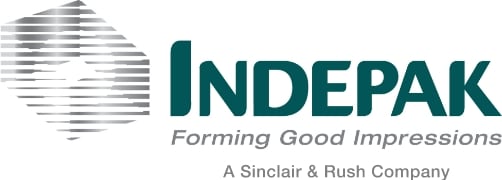We often hear the word sustainability tossed around, but what does this really mean? For those in plastic industry, it means we come up with options that reduce waste and reduce impact on the environment.
For many companies, including retail, food and pharmaceutical or medical firms, the need for packaging is great and thermoform packaging often is the most cost effective custom packaging solution. We offer many packaging options that are bio-based and renewable.
There are many key industry terms relating to sustainability, and it can be confusing to understand the specifics about each type of material. For instance, products often are listed as having recycled content. This means that the all or a portion of the materials used for that product came from pre-consumer or post-consumer waste.
Pre-consumer waste includes the excess plastic trimmed from a thermoform mold after a product or package is formed. Post-consumer waste is plastic that has been used by consumers and then sent to a recycling center. Many companies will opt for having products or packaging formed from recycled content.
Another option is a bio-based plastic and bioplastics and these are plastics that are made, partially or completely, using biological and renewable materials. Often these sources will include pea starch, cornstarch or vegetable oils. While they might be produced using biomass sources, bioplastic or bio-based plastics are not necessarily biodegradable, although some are compostable.
Biodegradable plastics are a type of plastic that can be decomposed by living organisms such as bacteria. Bioplastics, which are made from renewable sources, can be biodegradable, but some common plastic also can contain biodegradable additives which help them biodegrade. One thing to keep in mind is that while biodegradable plastics seem like a great option, some must be recycled at a specific composting facility that processes those types of plastic. Your basic curbside recycling program is not set up to handle biodegradable plastic so it can simply end up in a landfill anyway, which doesn’t really improve efforts at sustainability.
Of course, most thermoplastics in general can be recycled again and again, so while they might not all be compostable, most can be melted down and remolded into something new. Most curbside recycling programs accept plastics featuring a resin identification of 1 or 2, but some are even more expansive than that.
At Indepak, we are committed to protecting the environment and limiting our impact on the environment. We offer many post-consumer grade materials and almost all of the materials we use are recyclable. In addition, we do our best to minimize waste during production. We can offer our customers a custom packaging solution that keeps sustainability in mind throughout the process. If you need custom thermoforming, let Indepak design and create custom product packaging that meets all of your needs and goals.





